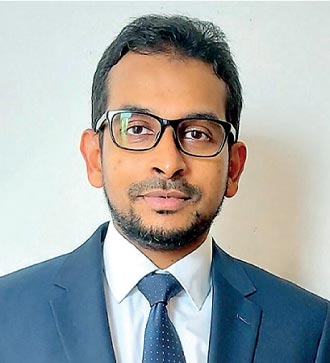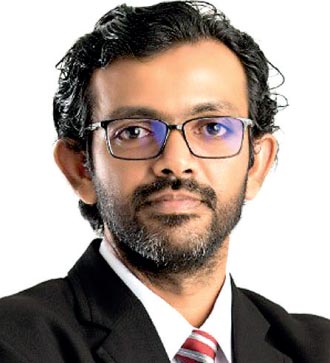Saturday Feb 21, 2026
Saturday Feb 21, 2026
Monday, 1 April 2024 02:32 - - {{hitsCtrl.values.hits}}

Sulaiman Nishtar

Nihal Wijewardana

Prasad Dassanayake

Sarah Afker
The Institute of Chartered Accountants of Sri Lanka (CA Sri Lanka) organised an insightful session that explored the latest tax updates affecting both individuals and businesses while assisting them in navigating through the changes.
The session titled “Navigating Tax Changes: TIN Registration and Temporary Concessions Explained,” held mid-month, helped individuals, including professionals, understand how to sign up for a Taxpayer Identification Number (TIN), apart from highlighting how to take advantage of the temporary concessions that will end before 31st March 2024.
The session brought together a highly knowledgeable panel, including Ernst & Young, head of Tax Sulaiman Nishtar, Nihal Wijewardana, Department of Inland Revenue Senior Deputy Commissioner, Dassanayake Associates Managing Partner Prasad Dassanayake and CA Sri Lanka Faculty of Taxation Chairperson Sarah Afker.
In his insightful presentation, Nishtar provided the participants, comprising chartered accountants as well as students and other professionals, with an overview of the income tax changes implemented for the year 2023/2024 and their impact. During his speech, he specifically highlighted restrictions on cash payments exceeding Rs. 500,000 while also elaborating in detail on the penal provisions for non-compliance.
Touching upon the highly discussed TIN registration, Nishtar explained in detail the possible inconveniences that a person may have to face once the measures explained in the budget proposals are brought into effect by law when purchasing property, renewing motor vehicle licences, opening current accounts at banks, among other matters.
The session concluded following a panel discussion where experts delved into detail on the matter at hand. Sharing his thoughts, Nihal Wijewardana, who spoke on behalf of the Department of Inland Revenue, explained that registering for income tax is not obligatory for individuals with only employment income but also stressed the significance of obtaining the TIN for all resident citizens above 18 years old.
According to him, non-residents do not necessarily need to register for a TIN unless they need to renew their vehicle licence in their name or to purchase assets. He also forecasted possible amendments to the income tax law, which will likely introduce marginal relief for employees with interest income as their only other source of income other than employment-related income.
Prasad Dassanayake utilised the platform to speak further on the temporary concessions, discussing the available temporary tax concessions such as enhanced capital allowances and additional deductions for information technology related businesses, valid until 31st March 2024. The session was moderated by Sarah Afker.